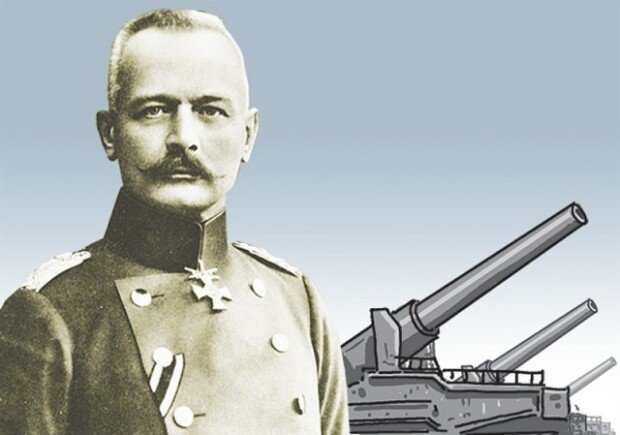A battle ruined by one person
A battle ruined by one person
Posted April. 12, 2022 08:29,
Updated April. 12, 2022 08:29

In the morning of March 21, 1916, some 1,200 German cannons were fired. The shelling, which continued until 4 p.m., demolished the artillery units of the French forces and railroads as well as fortresses and trenches in Verdun. During the World War l, there were 420mm and 380mm cannons. The German forces prepared 2.5 million rounds of shells for a week.
What was terrifying than the formidable firepower was thorough planning and preparation of the German forces. The bombardment tactics played in the Battle of Verdun was more precise, destructive and advanced than the ones used by the British and French allied forces in the Battle of Somme four months later.
The German army assigned missions according to the performance and range of their cannons. Heavy artilleries were used to strike trenches and soldiers while filed artilleries were used to attack the artillery units and the lines of communications of the French forces. After the first round of shelling, the German army attacked the French troops on the first line of defense with mortars, and launched a wall of fire using field artilleries at the rear of the first line to attack the reinforcing forces.
Once the enemy’s defense line retreated, German artillery units immediately moved forward to provide continuous artillery support. In order to avoid the anticipated counter-fire by the French forces and move quickly without confusion, the artillery units provided assisted shelling for one another.
Although not superior in all aspects, the German forces were pioneering and outstanding in terms of tactics and teamwork during the World War l and World War ll. The German forces were always ahead of their enemies not only in innovative tactics, such as the ones shown in the Schlieffen Plan and the Blitzkrieg, but also in their ability to apply and refine lessons learned from previous battles. For example, in the Battle of the Somme, the allied forces did not adopt the advanced tactics the German forces performed in Verdun. Where this difference came is a matter all military researchers should ponder deeply.
Despite such outstanding ability, however, the German army failed miserably in Verdun. The decisive reason behind the failure was Gen. Erich von Falkenhayn, Germany’s Chief of General Staff. The only reason this ineligible man became the Chief was because he won Kaiser Wilhelm II’s favor. The Battle of Verdun is proof that one inappropriate appointment can ruin everything. No administration has ended well in the last few decades. What would be the reason?



![17년 망명 끝에, 부모 원수 내쫓고 집권[지금, 이 사람]](https://dimg.donga.com/c/138/175/90/1/wps/NEWS/IMAGE/2026/02/18/133376197.3.jpg)



